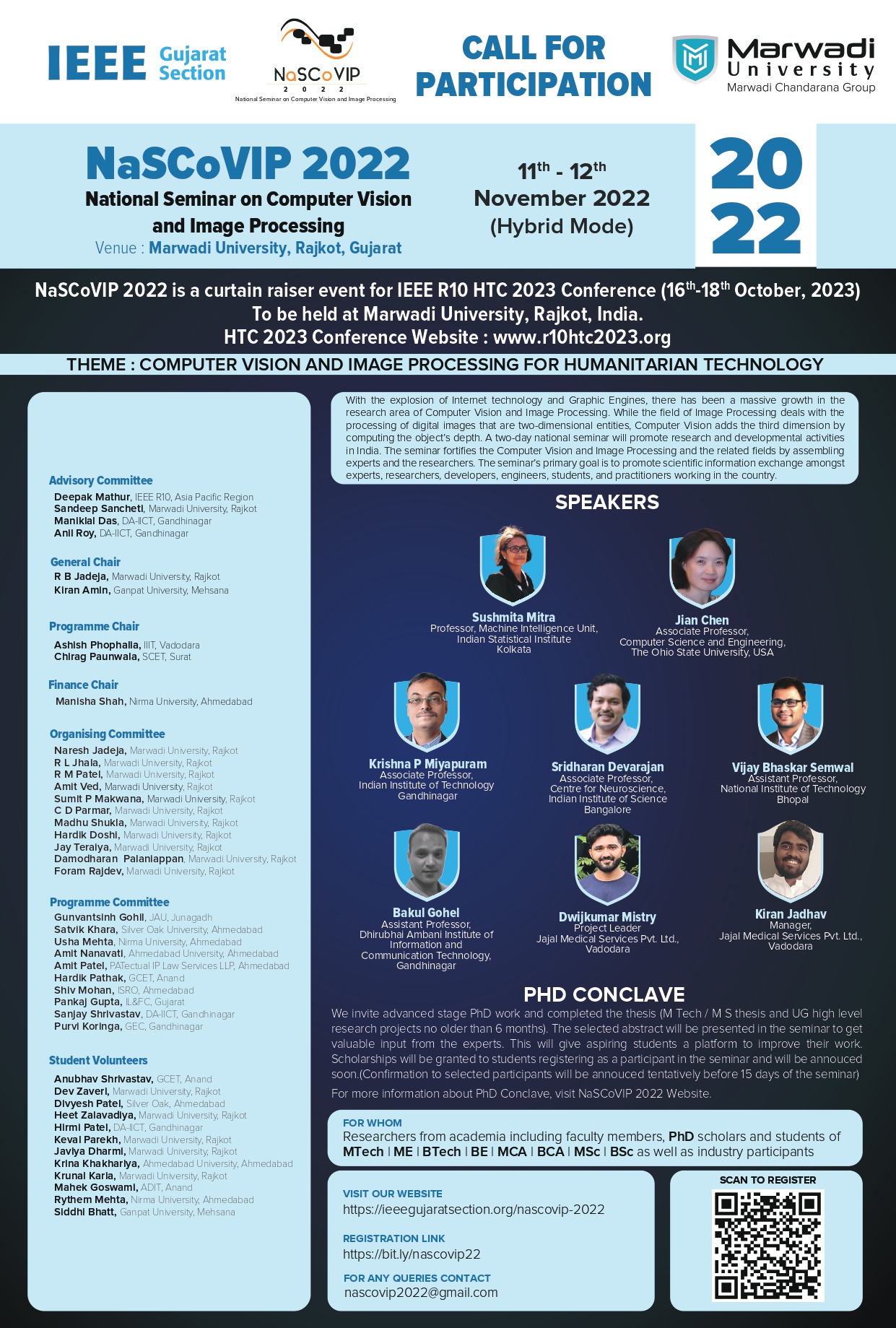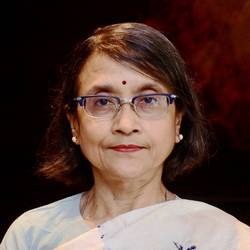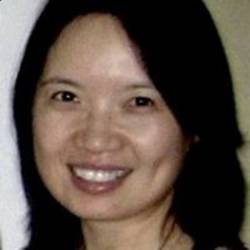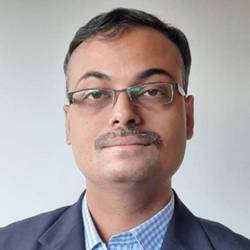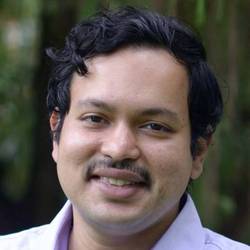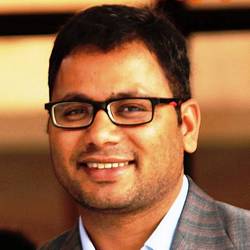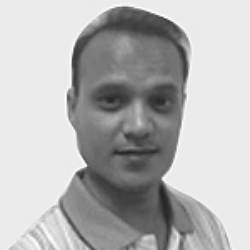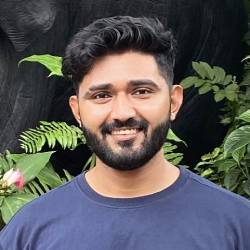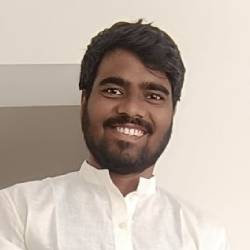
National Seminar on Computer Vision & Image Processing
NaSCoVIP 2022 is curtain riser event for IEEE R10 HTC (Humanitarian Technology Conference) (16th – 18th October, 2023) to be held at Marwadi University, Rajkot, Gujarat
Theme: Computer Vision and Image processing for Humanitarian Technology
Date: 11 – 12 November, 2022
Venue: Marwadi University, Rajkot
With the explosion of Internet technology and Graphic Engines, there has been a massive growth in the research area of Computer Vision and Image Processing. While the field of Image Processing deals with the processing of digital images that are two-dimensional entities, Computer Vision adds the third dimension by computing the object’s depth. A two-day national seminar will promote research and developmental activities in India. The seminar fortifies the Computer Vision and Image Processing and the related fields by assembling experts and the researchers. The seminar’s primary goal is to promote scientific information exchange amongst experts, researchers, developers, engineers, students, and practitioners working in the country. The scientific program of the seminar will consist of presentations by leading experts worldwide in the field of Computer Vision and Image Processing. Experts will address the recent developments and trends in the fields. Participants will get enough opportunity to enhance their knowledge regarding the state-of-the-art fields through interaction with experts. It will stimulate the research potential of the candidates who wish to pursue doctoral degrees in the related fields.
About IEEE
IEEE is the world’s largest technical professional organization dedicated to advancing technology for the benefit of humanity. IEEE and its members inspire a global community through its highly cited publications, conferences, technology standards, and professional and educational activities.
About IEEE Gujarat Section
IEEE Gujarat Section (registered u/s 80G) comes under the Asia-Pacific Region, the Region 10 of IEEE. The Gujarat Section, a subsection of Bombay Section, was upgraded to the full-fledged section on 15th August 1990. In 2004 Gujarat Section was adjudged the Outstanding Small Section of Region 10.
The section emphasizes quality programs, which are regular features for the professional development of its members. The section’s participative philosophy allows students to make programs as per their own needs. The section encourages students and has instituted awards for student members.
General Chair
-
- R. B. Jadeja, Marwadi University, Rajkot
- Kiran Amin, Ganpat University, Rajkot
Advisory Committee
-
- Deepak Mathur, IEEE R10, Asia Pacific Region
- Sandeep Sancheti, Marwadi University, Rajkot
- Maniklal Das, DA-IICT, Gandhinagar
- Anil Roy, DA-IICT, Gandhinagar
Program Chair
-
- Ashish Phophalia, IIIT, Vadodara
- Chirag Paunwala, SCET, Surat
Organizing Committee
-
- Naresh Jadeja, Marwadi University, Rajkot
- R. L. Jhala, Marwadi University, Rajkot
- R. M. Patel, Marwadi University, Rajkot
- Amit Ved, Marwadi University, Rajkot
- Sumit P. Makwana, Marwadi University, Rajkot
- C. D. Parmar, Marwadi University, Rajkot
- Madhu Shukla, Marwadi University, Rajkot
- Hardik Doshi, Marwadi University, Rajkot
- Jay Teraiya, Marwadi University, Rajkot
- Foram Rajdev, Marwadi University, Rajkot
Finance Chair
-
- Manisha Shah, Nirma University, Ahmedabad
Program Committee
-
- Gunvantsinh Gohil, JAU, Junagadh
- Satvik Khara, Silver Oak University, Ahmedabad
- Usha Mehta, Nirma University, Ahmedabad
- Amit Nanavati, Ahmedabad University
- Amit Patel, PATectual IP Law Services LLP
- Hardik Pathak, GCET, Anand
- Shiv Mohan, ISRO, Ahmedabad
- Pankaj Gupta, IL&FC, Gujarat
- Sanjay Shrivastav, DA-IICT, Gandhinagar
- Purvi Koringa, GEC Gandhinagar
Student Volunteers
-
- Anubhav Shrivastav, GCET, Anand
- Dev Zaveri, Marwadi University, Rajkot
- Divyesh Patel, Silver Oak, Ahmedabad
- Heet Zalavadiya, Marwadi University, Rajkot
- Hirmi Patel, DA-IICT, Gandhiangar
- Keval Parekh, Marwadi University, Rajkot
- Krina Khakhariya, Marwadi University, Rajkot
- Krunal Karia, Marwadi University, Rajkot
- Mahek Goswami, ADIT, Anand
- Parth Pandya, Marwadi University, Rajkot
- Rythem Mehta, Nirma University, Ahmedabad
- Siddhi Bhatt, Ganpat University, Mehsana
| Day 1: Nov 11, 2022 | ||
| 10.00 AM | Inaugrationa | Title |
| 10.30 AM – 11.45 AM | Prof. Sushmita Mitra | Harnessing AI for Healthcare |
| 12.00 Noon – 1.15 PM | Prof. Bakul Gohel | Deep Learning and Medical Informatics |
| 1.15 PM – 2.30 PM | Lunch Break | |
| 2.30 PM – 3.45 PM | Prof. Krishna P Miyapuram | Brain Computer Interfaces for Reconstructing sensory experiences |
| 3.45 PM – 4.00 PM | Tea Break | |
| 4.00 PM – 5.15 PM | Prof. Jian Chen | Understand data and AI to help the society |
| Day 2: Nov 12, 2022 | ||
| 10.30 AM – 11.45 PM | Prof. Sridhar Devarajan | Efficient remedies for outlier detection with deep generative models |
| 12.00 Noon – 1.15 PM | Prof. Vijay Bhaskar Semwal | Moving toward Design of Data Driven IoT model using Deep learning(TinyML) for Human Activity Recognition using |
| 1.15 PM – 2.30 PM | Lunch Break | |
| 2.30 PM – 3.45 PM | Dwij Mistry & Kiran Jadhav | AR/VR Jajal Medical Services |
| 3.45 PM – 4.00 PM | Tea Break | |
| 4.00 PM – 5.00 PM | PhD Conclave | |
| 5.00 PM – 5.30 PM | Veledictory Session | |
We invite advanced stage PhD work and completed the thesis (M. Tech. / M. S. thesis and U.G. high level research projects no older than 6 months). The selected abstract will be presented in the seminar to get valuable input from the experts. This will give aspiring students a platform to improve their work. Scholarships will be granted to students registering as a participant in the seminar and will be announced soon. (Confirmation to selected participants will be announced tentatively before 15 days of the seminar)
Interested candidate can email their Abstract to nascovip2022@gmail.com
Last Date of Submission: 10th November, 2022
| Participation Category | Registration Fee |
|---|---|
| Physical Participation (Food and Welcome Kit Included) |
|
| IEEE Students Member | ₹ 590 |
| Non-IEEE Student Member | ₹ 885 |
| IEEE Professional Member | ₹ 767 |
| Non-IEEE Professional Member | ₹ 1180 |
| Virtual Participation | |
| IEEE Students Member | ₹ 354 |
| Non-IEEE Student Member | ₹ 531 |
| IEEE Professional Member | ₹ 472 |
| Non-IEEE Professional Member | ₹ 767 |
- Registration fee includes 18% GST.
- IEEE Membership Card is required in case of IEEE Member.
- Valid Student ID card issued by institute is required in case of Student Registration.
Concession for student if registering in a group.
- Student who are registering in group (group must be of at least 10 students) will get 20% discount for offline registration.
- For group registration discounted registration fees will be Rs. 472 for IEEE Students Member and Rs. 708 for Non IEEE Student Member.
- For gorup registration make a common payment per group and fill registration form for all the members with common payment receipt, Also send single email with details of all the students in a group as well as payment receipt to nascovip2022@gmail.com email address.
Accommodation: Hostel accommodation on charge basis would be available for participants in Marwadi University campus first come first serve basis.
Registration Process
- Pay the above fees as per your category using below payment modes and save payment details.
- After payment, fill the registration form using link (https://bit.ly/NaSCoViP-2022). (Keep payment detail, IEEE Membership Card (in case of IEEE Member) and Student ID Card (in case of Student) ready before filling the registration form.)
Mode of Payment: NEFT or IMPS
Registration Account Details
Bank Account Name: IEEE Gujarat Section
Bank Account Number: 10307643269
Bank Name: State Bank of India
Bank Branch: SBI, Infocity Branch
Address : Gr Floor, Infocity, Gandhinagar
Branch code: 012700
IFSC Code: SBIN0012700
MICR Code: 380002151
Registration Form Link: https://bit.ly/NaSCoViP-2022


